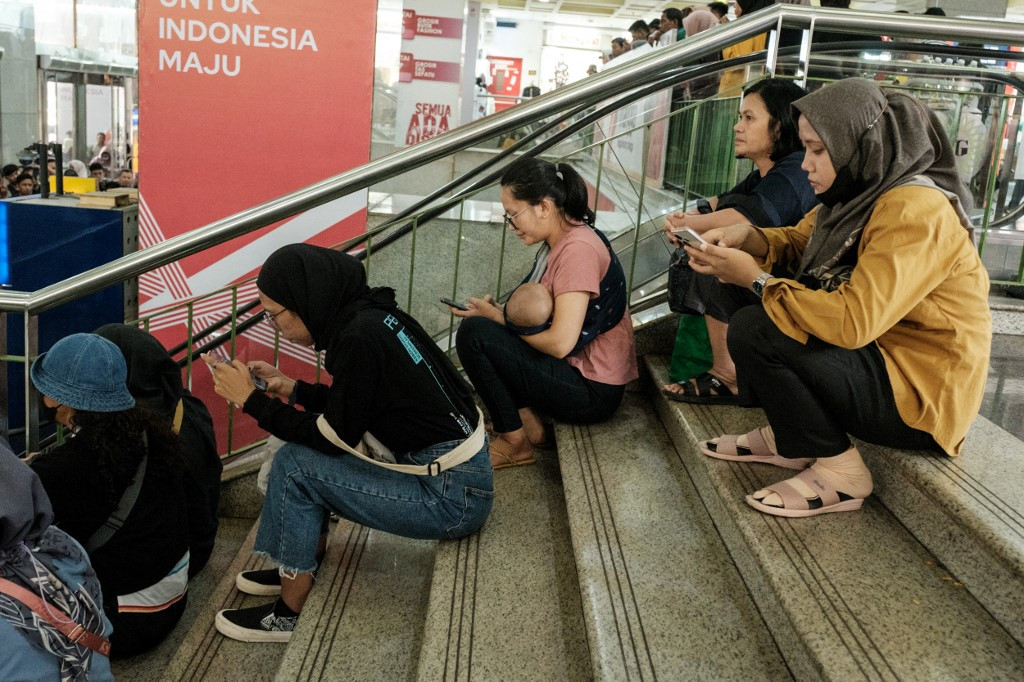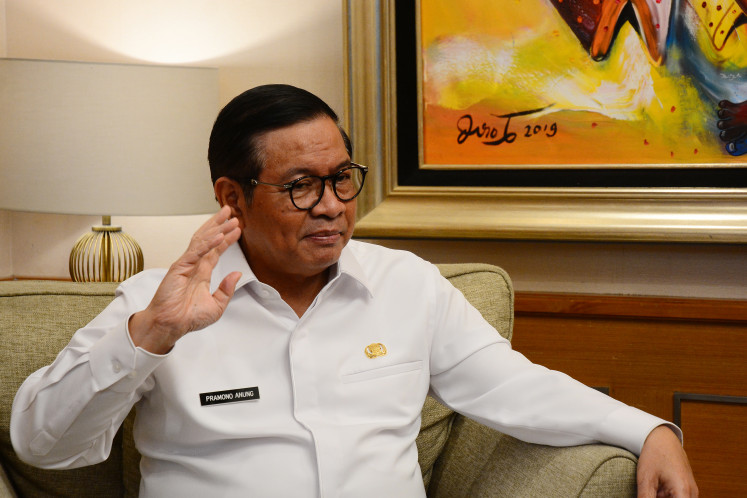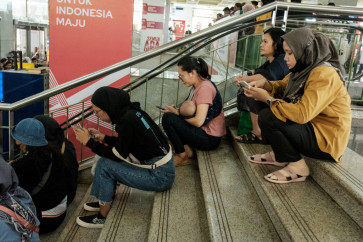Popular Reads
Top Results
Can't find what you're looking for?
View all search resultsPopular Reads
Top Results
Can't find what you're looking for?
View all search resultsWhy should we trust the government with our hard-earned money?
The most crucial question about our trust in the government is how dependable it can be when corruption is a deeply rooted part of Indonesian culture.
Change text size
Gift Premium Articles
to Anyone
I
f you eagerly awaited and finally received your Idul Fitri bonus (THR) this month, you may have reacted the same as most other middle-class workers around us. You knew it was coming, but still, the figure you saw may have disappointed, if not enraged you.
Gone is the dream of self-reward after breaking your back to make ends meet, your plan to lighten the burden of your mortgage or simply to make your family happy this Eid season.
It was not enough that our income tax was raised last year. Now comes another policy: An average effective rate system calculated based on the monthly income you receive. By this system, if you receive bonuses you deserve or other obligatory additional income like the THR, the amount you receive will be added to your monthly income and you will be heavily penalized by progressive taxing.
You suddenly feel like a crazy rich person who must contribute more to the nation.
We all want to tax the rich. But does this progressive tax address inequality in the way we wish to see, when the blade is sharper for the working class than for millionaires whose income might not be written on company papers?
We have been economic editors and journalists for years, but we are not tax experts. Our respective backgrounds are in political economy and law, and we barely know how the tax brackets and tiers were calculated. Still, our question now lingers on how much we should trust the government with our money when our basic needs still rely on installments, which is not a surprising case for millennials.
Our reasons are far from complicated. The most crucial question about our trust in the government is how dependable it can be when corruption is a deeply rooted culture in Indonesia, which scored 37 out of 100 in Transparency International’s Corruption Perception Index 2024. The tax office is known as a vulture. Among the recent cases is former tax official Rafael Alun Trisambodo, who was found guilty of corruption and money laundering in January last year. The erosion of public trust, explained by the Principal-Agent Problem, illustrates how entrenched corruption discourages voluntary tax compliance.


















